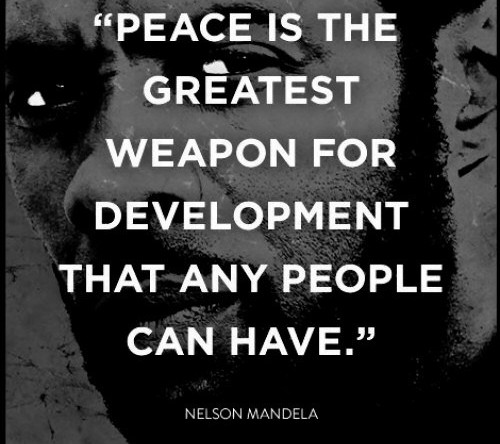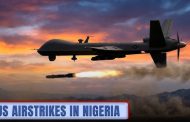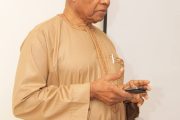In this last of a three-part series which started on June 5th with “Does the Nigerian Media Amplify or Downplay Boko Haram?”, continued on June 8th with “When Journalists Reflect on the Media, Conflict and Nigeria’s Future (1)”, there is a key question which is whether counter-messaging works. According to the facilitator, the literature is still not too sure that it works. However, the report from the field suggests it does, at least for Boko Haram, Al-Shabab, al-Qaeda. The example of a previous confession was instructive. According to the story, when Boko Haram attacked Giwa Barrack in Maiduguri a few years back, the next thing it did was to send an hour long CD to selected persons in which it tried to explain why they did it. One of such persons who found time to watch the video told others how, at a point, he could hear himself saying something like, “yea, this guy is making sense”. So, if an uneducated Shekau could sound convincing to an educated viewer/listener/reader of his messaging, then counter-messaging should, logically, work.

in session
But a Conflict Sensitive journalist, (CSJ) is unlike a terrorist. Unlike a terrorist, s/he is not claiming to have a cause to fight that justifies mass atrocities. On the contrary, a CSJ seeks to report in such a way that does not implicate the media in conflict by either over amplifying terrorists or exacerbating the insecurity situation created by terrorism. The rule book says the way to walk this tight rope is for the journalist to be driven by the principles of accuracy; impartiality and responsibility. This is described as a fine line to walk. But, does it solve the problem of journalists trying to transform violent extremism through CSJ?
The sense a media message makes depends on the listeners/viewers/readers, not on just what journalists write. That is why a cartoon far away in Norway or Sweden could be interpreted as provocative somewhere in Nigeria even when the cartoonist has probably never heard of Nigeria all his life. It is because meaning is specific to time and space, the same reason that makes writing in general and journalism in particular a dangerous profession. What the journalist thinks is an innocent report could be read “upside down” through a dialogic engagement with such a report by some people in their own small corner as to lead to bloodshed. That is why objectivity is a ruse. Balance and fairness, yes; objectivity, no!
Nowhere more than Nigeria might this contradiction be such a sensitive issue given the consistency in the bashing of journalists even when journalists think they, more than any other professionals, have done more to secure the country, at a time of great moral decay, some would say. Uniting as diverse as Anthony Enahoro, the late elder statesman, University of Ibadan’s equally late Professor Billy Dudley, ex-Ahmadu Bello University, Zaria’s Professor Egite Oyovbaire, Benue State University’s Professor Mvendaga Jibo and activist Professor Jibrin Ibrahim is, however, the conclusion that, as far as conflict reporting is concerned, the media in Nigeria is a force for exacerbation than otherwise. For Enahoro, “whoever and whatever ruined the First Republic did so with the connivance and active collaboration of the greater part of the Nigerian press”.
In a 2002 presentation to the National Institute for Policy and Strategic Studies, (NIPPS) which caused considerable indigestion across newsrooms in the country, Oyovbaire specifically maintained that the Nigerian press has, since its modern inception, had to contend with a split or simultaneous image of being nationalistic yet geo-politically partisan. He traced this to a locational ideology problem. An editor tried to interrogate the claim. It is not clear how far he went. Interestingly, the famous Professor Billy Dudley then at the University of Ibadan, had used almost the same vocabulary for the press in 1965, much earlier than Enahoro oe Oyovbaire. Dudley’s profile of the Nigerian press at the time was one of indifference to the ills and problems of the society in favour of “half-truths, mistrusts, suppression of truths, jaundiced reporting and witch-hunting, maleducation of the public, sycophancy and lack of guts. If Dudley were still alive, he might have added new charges while also taking away some others.
 One may not be sure of that though given that as late as 2003, Prof Mvendaga Jibo’s own charge sheet echoed Enahoro powerfully: “the partisanship of the Nigerian press played a significant role in destroying the First Republic by over-simplifying political differences, thus heightening tension and whipping up negative inter-ethnic and inter-regional sentiments which result-ed into a coup and eventually three years of a war of secession”. Wale Adebanwi who devoted attention to media narratives of the Nation in a UI thesis concluded along that line by saying that the media became experts in the mobilization of bias, having been established to champion certain interests in the first place and could thus not challenge the reductionism, simplifications and selective mobilization of resentment through which self-promoted vicars of identities appropriate very potent symbols in the debate over the National Question. Jibrin Ibrahim’s exploration of “The Kaduna Mafia Syndrome and The New Nigerian” in the early years of his scholarship supports all the above claims because he showed that the paper was as hostile to Southern politicians as much as the newspapers in the Lagos-Ibadan axis denigrated politicians of Northern extraction
One may not be sure of that though given that as late as 2003, Prof Mvendaga Jibo’s own charge sheet echoed Enahoro powerfully: “the partisanship of the Nigerian press played a significant role in destroying the First Republic by over-simplifying political differences, thus heightening tension and whipping up negative inter-ethnic and inter-regional sentiments which result-ed into a coup and eventually three years of a war of secession”. Wale Adebanwi who devoted attention to media narratives of the Nation in a UI thesis concluded along that line by saying that the media became experts in the mobilization of bias, having been established to champion certain interests in the first place and could thus not challenge the reductionism, simplifications and selective mobilization of resentment through which self-promoted vicars of identities appropriate very potent symbols in the debate over the National Question. Jibrin Ibrahim’s exploration of “The Kaduna Mafia Syndrome and The New Nigerian” in the early years of his scholarship supports all the above claims because he showed that the paper was as hostile to Southern politicians as much as the newspapers in the Lagos-Ibadan axis denigrated politicians of Northern extraction
So, how far would words such as accuracy and impartiality take a journalist in reporting conflict? There is a tentative answer in looking at every conflict beyond a single story syndrome, (SSS). That is, one, go for multiple narratives rather than frame the conflict in terms of a black versus white crisis because every story has more than one ‘cause’. It is not peaceful journalism either to restrict outcomes to victory or defeat because, in real life, victory or defeat are interpretations and the cost of victory could, sometimes, be such that it can only mean what a particular speaker intends it to mean. Lastly, it is one thing for a terrorist organisation to kill five or ten persons, it is another thing for a journalist to report the figure of 25 in such a circumstance or to start disaggregating the figure into northerners versus southerners, Christians versus Muslims or nationals versus foreigners. Such reporting is anti-thetical to peace because it does not only amount to amplifying terrorists, it is also asking the side which might have lost more to the killing to avenge, thereby upstaging peace which is what everyone else wants, except terrorists.
As complex as some of these may sound, they are the principles and techniques by which the media could hope to get out of being held complicit in terrible things as collapsing the First Republic in Nigeria, for instance, or contributing to genocide in Rwanda. Getting out of such perception must be a priority to journalists since no media might exist just for the sole purpose of creating crisis without risking being avoided. So, an opportunity to remind those who already know about Conflict Sensitive Journalism or to draw attention of those who never engaged with it must be rated as crucial in a country such as Nigeria where journalism training is still dominated by the credo of objectivity and its inherent biases for violence. It is in that sense that the three organisations involved – Search for Common Ground, Northeast Regional Initiative, (NERI) and the United States Agency for International Development, (USAID) have been commended and also implored to do more.
 There were many inconclusive debates such as whether extremism and radicalism are the same or distinguishable; how different is covering Boko Haram from covering MEND or the question of possibility of Empathy for terrorists in the aftermath of the atrocities they commit but, the more useful debate worth mentioning in detail here must be the session on the social media, (SM) in all these. It was much better rated than the government media, for example, although few voices didn’t mind if it is regulated. In the end, a tense balance existed for that domain: the social media is a space for people to abuse themselves from morning to night but a lot of constructive conversation also goes on there. The SM is very important, everyone said but only to add that they are causing confusion, selling lies, sitting at home and writing stories, taking a statement issued several years ago and using it to put out one stuff or another, importing pictures of violence from outside the country and passing it off as an instance of violence within Nigeria, among others.
There were many inconclusive debates such as whether extremism and radicalism are the same or distinguishable; how different is covering Boko Haram from covering MEND or the question of possibility of Empathy for terrorists in the aftermath of the atrocities they commit but, the more useful debate worth mentioning in detail here must be the session on the social media, (SM) in all these. It was much better rated than the government media, for example, although few voices didn’t mind if it is regulated. In the end, a tense balance existed for that domain: the social media is a space for people to abuse themselves from morning to night but a lot of constructive conversation also goes on there. The SM is very important, everyone said but only to add that they are causing confusion, selling lies, sitting at home and writing stories, taking a statement issued several years ago and using it to put out one stuff or another, importing pictures of violence from outside the country and passing it off as an instance of violence within Nigeria, among others.
Some people, however, drew attention to how the space is dominated by a particular generation or the social media generation and how everyone has a Facebook book account because access to the traditional media is restricted. There was a reminder too about how the SM has helped traditional media to reconfigure conflict reporting. “It is what the SM puts out that the traditional media latches on to subsequently”, so went a claim. And then the accusation: it is the traditional media that is arguing for regulation of the SM, followed by the caution: Nigeria would pay for it if there is a clampdown on SM. Discussion here was thus a draw.
It is important to note that the discussion was not on SM for SM sake but in terms of its instrumentality in transforming violent extremism. It was in taking up that segment that the reportorial creativity or innovativeness of Nigerian media in covering Boko Haram came out. With no previous experience of such horror, the journalists matched into the arena with vast array of programmes whose contributions to curtailing the excesses of Boko Haram ought to be the subject of a serious study. A particular media organisation personified this at the workshop based on the blow by blow account of what it did in that dangerous and generally difficult time throughout the Northeast. The presentation was the basis of the conclusion eventually about the difficulty of mainstreaming women in conflict reporting due to a combination of dispositional, religious and military’s operational logic, among others.
The expectation is that an enhanced performance is guaranteed after this reflective session and the programme outlay participants came up with, especially when stewed in the paradigm of Conflict Sensitive Reporting. The paradigm firmly places journalists in a better position to play the change agent in a country brimming with violent intents. They are not going to do this by preaching to anybody but by changing the narratives from the single story to multiple reading of conflict situations that allows for sustainable peace rather than cycle of violence. Although the power of the media does not lie with the writers as much as with the readers, such emphasis can be productive of peace through shared understanding.
Series concluded!




























